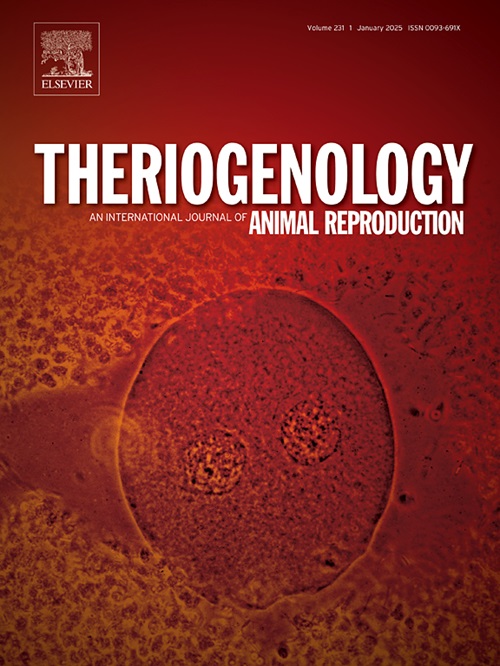Porcine endometrial epithelial organoids: Generation, characterization, and the impact of stromal cells
IF 2.4
2区 农林科学
Q3 REPRODUCTIVE BIOLOGY
引用次数: 0
Abstract
Endometrial organoids (EOs) are three-dimensional models that emulate the endometrium, serving as an invaluable in vitro tool for investigating the cellular and molecular mechanisms underlying endometrial physiology and pathology during the estrous cycle and pregnancy. While significant progress has been made in the establishment and optimization of EOs for both humans and mice, research on such models in other species remains limited. This study aimed to develop porcine endometrial epithelial organoids (EEOs) to explore the regulatory mechanisms of uterine function and maternal-fetal interactions during porcine pregnancy, which are critical for enhancing reproductive efficiency and improving embryo transfer techniques. Utilizing a defined protocol involving Matrigel and a simplified culture medium, we successfully established EEOs from porcine endometrial epithelial cells, which demonstrated epithelial characteristics, proliferative capacity, glycogen secretion, and hormonal responsiveness. Co-culturing with porcine endometrial stromal cells not only enhanced EEO formation but also mitigated the negative effect of progesterone on glycogen secretion. This cost-effective and efficient method provides a valuable reference for EO generation in other large animal species.
求助全文
约1分钟内获得全文
求助全文
来源期刊

Theriogenology
农林科学-生殖生物学
CiteScore
5.50
自引率
14.30%
发文量
387
审稿时长
72 days
期刊介绍:
Theriogenology provides an international forum for researchers, clinicians, and industry professionals in animal reproductive biology. This acclaimed journal publishes articles on a wide range of topics in reproductive and developmental biology, of domestic mammal, avian, and aquatic species as well as wild species which are the object of veterinary care in research or conservation programs.
 求助内容:
求助内容: 应助结果提醒方式:
应助结果提醒方式:


